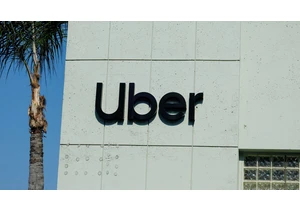More than 4.5 million Americans quit their jobs in November and, in the arsenal of resources corporations will tap into to understand this attrition and stem the bleeding, creator-based social media platforms have become increasingly important. Because, while LinkedIn remains the internet’s bastion of polite society and Glassdoor its anonymous complaints department, many leavers—especially Millennials and Generation Z’ers—are turning to TikTok and YouTube to publicly air their grievances. And, oh boy, do they have grievances. An exact phrase search on YouTube for “Why I Left Buzzfeed” yields pages upon pages of results. More than a dozen of these videos have been viewed more than half a million times each—with creators citing reasons for leaving that range from lack of support and career development to desire for independence or IP ownership and entrepreneurial drive.
Google, Facebook, multi-level marketing companies (MLMs), and “The Big 4” management consulting firms are also popular targets—with alumni skewering their former employers in extensive, detailed, no-holds-barred, direct-to-camera testimonials. Meanwhile, on TikTok, shorter-form #iquit hot takes range from earnest to emotional—sometimes even veering into mockery.
@stef.pinsley Reply to @savagehrt1 why I quit my job at Google #careerchange #googler #google #quitmyjob #careeradvice #anxiety #storytimestiktok #mystorymylife ♬ original sound – speblack
Even a decade ago, this type of public bridge-burning was almost unheard of. Back in the nascent days of social media, when non-disclosure and non-disparagement clauses were par for the course, one-on-one exit interviews were the extent of employee feedback—and, for better or for worse, poor experiences were relegated to the realms of industry gossip. Fast forward to today, an era in which many startups haven’t invested in developing robust human resources departments, but everyone can have a voice on far-reaching publishing platforms, and, well, this is what happens.
“People care about three things: Do you see me? Do you hear me? Does what I have to say matter to you?” says Désirée Pascual, chief people experience officer at Headspace Health, channeling Oprah. “If they get a sense that it doesn’t, they will make themselves heard—and there are so many platforms by which they can accomplish that now, so they can decompress whatever emotions they’re holding. When you feel anxious, when you feel unseen, and you feel unheard, you will find a release.” When employees turn to public platforms instead of internal resources to vent frustrations, oftentimes it’s because they don’t feel safe to do so within their organizations—and they hold back, even when they already have one foot out the door.
@mividamahalia Details behind why I left my teaching job in the middle of the school year#teachersoftiktok ♬ original sound – M Alyssa Aponte
Exit interviews are designed to tell employers why the employee is leaving and whether the company can do something to retain them or prevent others from leaving, says Pascual. “But when you talk to employees, the popular narrative is: ‘When it comes to exit interviews, the general rule is if you don’t have anything nice to say, don’t say anything at all. You don’t want to burn bridges, you don’t want to create grievances,'” she says. The risk of offending people is just too high, she says—and that’s a missed opportunity. “There is absolutely no replacement for a candid, one-on-one conversation with employees,” says Pascual. “We get infinitely more valuable information when we sit with folks one on one. But in order to have a meaningful conversation, you need to build trust and psychological safety, so people will tell you what is really on their mind—or you’ll never get meaningful feedback that will allow you to iterate.”
@coachtorigordon Why i left corporate. ???? #smallbusiness #entrepreneur #careertiktok #lifeadvice #lifecoach ♬ Get You The Moon – Kina
“The entire approach has to start at the beginning, and then be a thread all the way through the exit interview,” Pascual says. “Psychological safety starts with your very first conversation.” So how can employers flip the script—especially during the “Great Resignation”, when retaining talent has become increasingly difficult? Pascual recommends taking a closer look at corporate culture.
As employees’ preferences continue to evolve toward a more values-centric, work-life balance, Pascual says that companies must follow suit—and switch from a transactional to a relational workplace. “I feel it’s an opportunity for us, as employers, to pivot to a new way of thinking about the workplace—and to create inspiring workplaces where people can thrive,” Pascual says. “The pandemic has sparked a movement among employees where they’ve come to expect more from their jobs—they want fulfillment, flexibility, and support in various forms. When they don’t get those things from their employers, they resign.” And then they take those grievances to TikTok.
Login to add comment
Other posts in this group

Hackers linked to Russia’s government launched a cyberattack last spring

In a time where tariff price hikes are invading seemingly every

Remember the viral “Ice Bucket Challenge” of 2014? Over a decade later, it’s back—

The U.S. Federal Trade Commission on Monday sued Uber Technologies, accusing it of signing up some Uber One subscribers without their knowled

As Big Tech kicks off its quarterly earnings season this week, the industry’s bellwether companies have been thrust into a cauldron

Weeks ahead of his death, Pope Francis dedicated this month’s prayer intention to

Remember when TikTok went nuts for “Dubai chocolate”? Well, that fervor is now causing an international shortage of pistachios.
The trend took off in 2023 when food reviewer Maria Vehera
